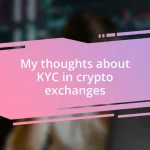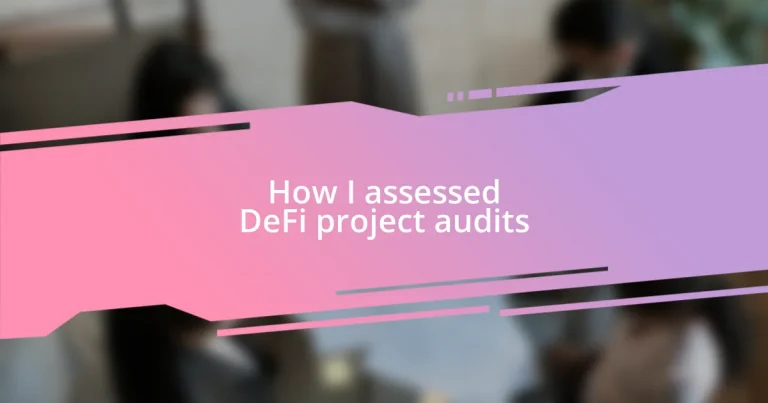Key takeaways:
- Audits provide essential security and credibility for DeFi projects, reassuring investors by ensuring thorough scrutiny by experts.
- Key criteria for evaluating audits include the credibility of the auditing firm, the comprehensiveness of the audit report, and the recency of the audit.
- Transparency and community feedback are critical factors in choosing auditors, as they foster trust and informed decision-making in the DeFi space.
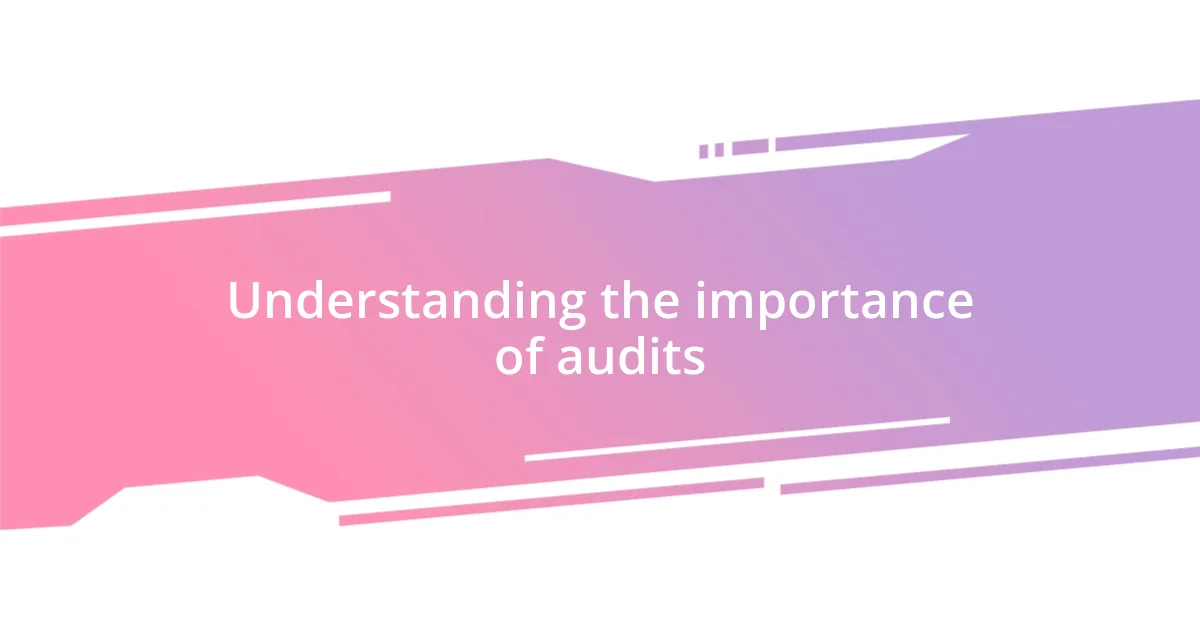
Understanding the importance of audits
Audits are like a safety net in the volatile world of DeFi projects. I remember my first foray into decentralized finance, where I was dazzled by high returns but equally intimidated by security risks. It struck me then how crucial audits are; they not only protect your investment but also bring a layer of credibility to the project.
When we consider the staggering number of hacks and exploits in DeFi, it’s hard not to feel a pang of anxiety. Have you ever thought about the peace of mind an audit can provide? It reassures you that the project has been scrutinized by experts who understand the intricate codes that govern these platforms. Without this examination, you’re essentially stepping into a minefield—one misstep could cost you dearly.
I’ve seen projects proudly display their audit reports, and it invariably boosts my confidence in them. It’s fascinating how a simple document can impact trust and decision-making so significantly. Being able to trace back to those audits offers a sense of security, reminding us that while risk is inherent, due diligence can mitigate it. Isn’t that what we all seek when diving into new opportunities?
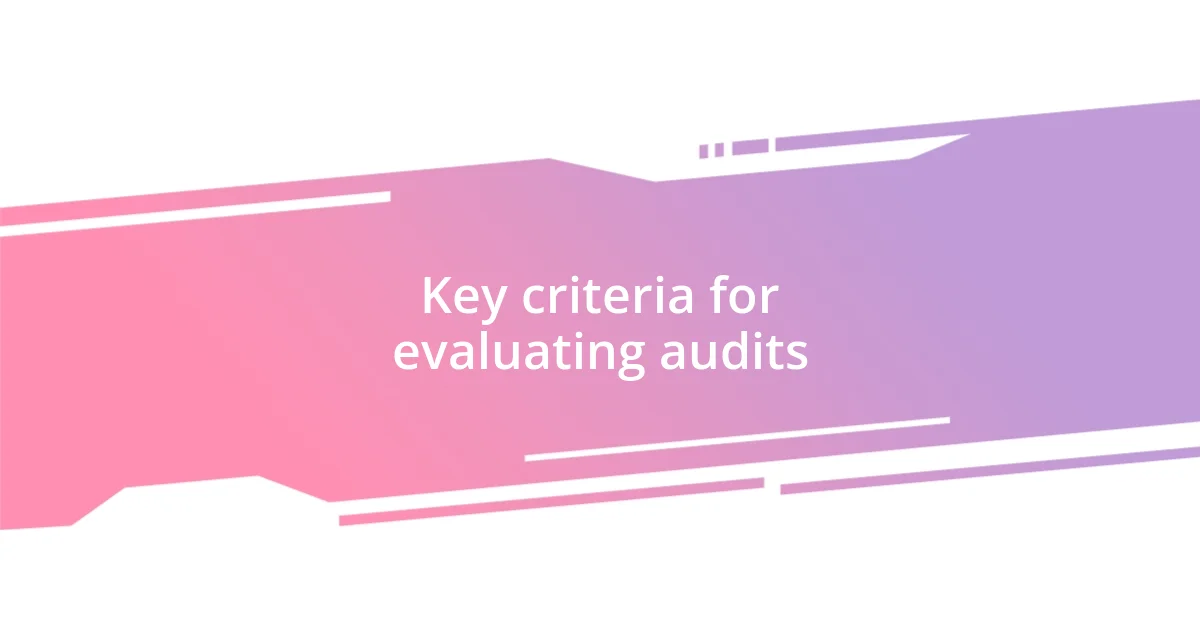
Key criteria for evaluating audits
Evaluating the quality of a DeFi project audit requires a keen eye for detail. One key criterion I always consider is the credibility of the auditing firm. I once stumbled upon a project that had its audit conducted by a reputable firm, which brought me a sense of reassurance. Knowing that seasoned professionals had examined the code gave me confidence to dive deeper and explore the project further.
Another important factor is the comprehensiveness of the audit report. I’ve encountered audits that merely skimmed the surface, leaving gaping holes in their findings. A thorough report includes detailed insights, potential vulnerabilities, and suggested fixes. It’s like having a roadmap; the more information I have, the better decisions I can make. Have you ever found yourself poring over a technical document, trying to glean the truth? I certainly have, and it’s a process that requires diligence.
Lastly, the length of time since the audit was conducted plays a critical role in my assessment. I remember hesitating on a project that had an audit report older than six months; the rapid pace of innovation in DeFi can render earlier audits almost obsolete. It’s essential for projects to have regular updates and reassessments, ensuring that any new vulnerabilities are identified and addressed promptly.
| Criteria | Description |
|---|---|
| Credibility of Auditing Firm | Reputation and experience of the auditing firm can influence trust in the audit findings. |
| Comprehensiveness of Audit Report | A detailed review that outlines potential vulnerabilities strengthens the project’s credibility. |
| Age of the Audit | Timeliness of the audit report is crucial; frequent updates ensure ongoing security. |
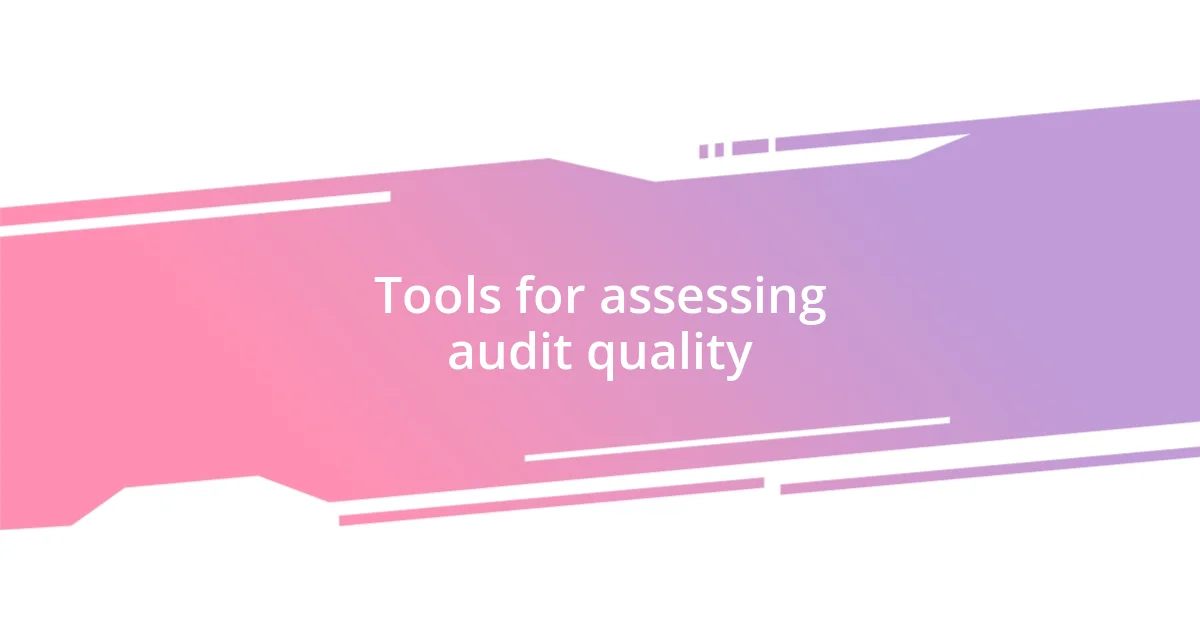
Tools for assessing audit quality
When it comes to assessing the quality of DeFi project audits, I’ve found several tools invaluable in my journey. One such tool is CodeAnalyzer, which provides a wealth of information regarding the audit report’s thoroughness. I love how it breaks down the lines of code analyzed and highlights areas flagged for concern. It’s surprisingly reassuring to see a tool visualizing what the auditors have done. Additionally, I often lean on community platforms like Reddit or specialized forums where users share their experiences with different auditors. Hearing firsthand accounts allows me to gauge the trustworthiness of the firms involved.
Here are some tools I’ve found helpful for assessing audit quality:
– CodeAnalyzer: Offers detailed breakdowns of audited code and highlights vulnerabilities.
– Reputation Platforms: Websites like GitHub and Reddit provide user feedback on specific auditors.
– AuditScore: A scoring system that ranks audit firms based on their historical performance.
– DeFi Audit Aggregators: These platforms compile results from various auditing firms, allowing easy comparison of audits.
– Blockchain Explorers: Useful for verifying transaction data and securing the integrity of the projects being audited.
I remember the moment I discovered DeFi Audit Aggregators; it felt like I had stumbled upon a treasure trove. These platforms not only saved me time but also empowered me to make informed choices quickly. There’s something refreshing about having a central place to compare audits, almost like reading user reviews for a restaurant before making a dinner reservation. It’s fascinating how the right tools can transform an overwhelming process into something manageable and insightful.
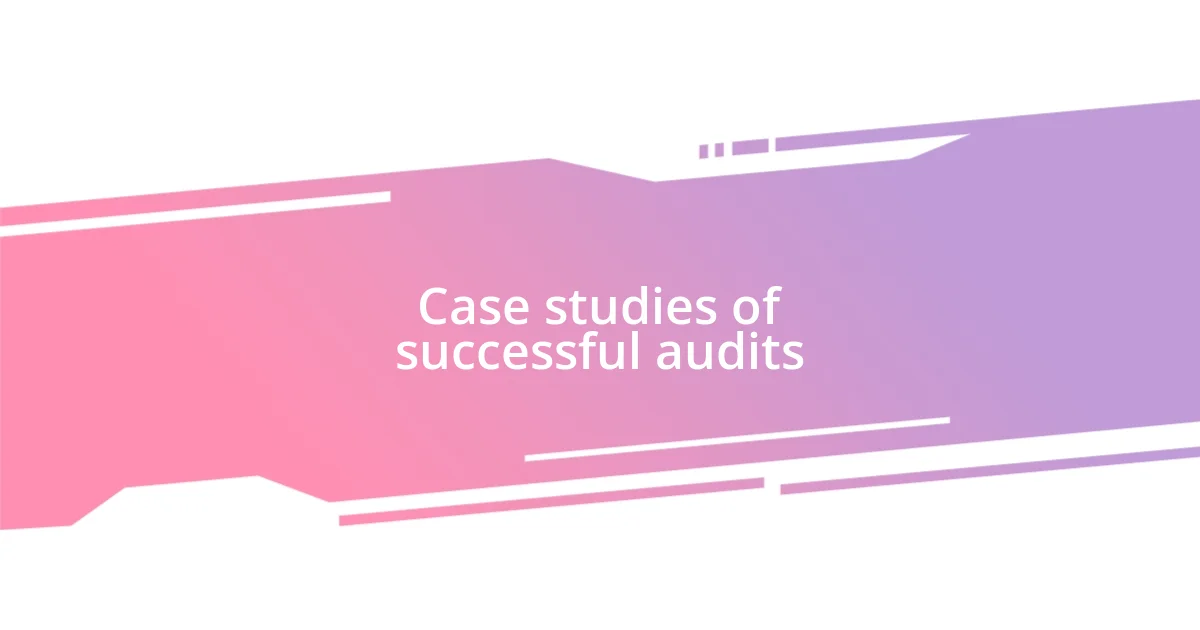
Case studies of successful audits
One case study that stands out is a DeFi lending platform that underwent a comprehensive audit by a well-known firm. Their detailed report not only identified several potential vulnerabilities but also provided actionable insights that the developer team could implement immediately. I recall feeling an immense sense of relief, as the robust findings reinforced my decision to invest in the platform, knowing that the team was proactive rather than reactive. Doesn’t it feel great when diligence pays off like that?
Another compelling example involved a decentralized exchange that received an audit highlighting a critical flaw in its smart contract. The auditing firm not only flagged this issue but also walked the team through the resolution process step by step. It felt empowering to see the engagement between the auditors and the developers, showcasing a collaborative effort that goes beyond just pointing out problems. Have you ever witnessed a team turn feedback into an opportunity for growth? It’s a testament to the importance of communication in the audit process.
Lastly, I was particularly impressed by a recent audit of a newly launched yield farming project. They released their audit findings almost immediately after the audit was completed, and the transparency they demonstrated resonated with me. I couldn’t help but think about how such openness builds trust in a space often riddled with skepticism. In my experience, when projects are transparent about their audits, it creates a ripple effect, encouraging other projects to follow suit. Wouldn’t it be amazing if transparency became the norm in the industry?
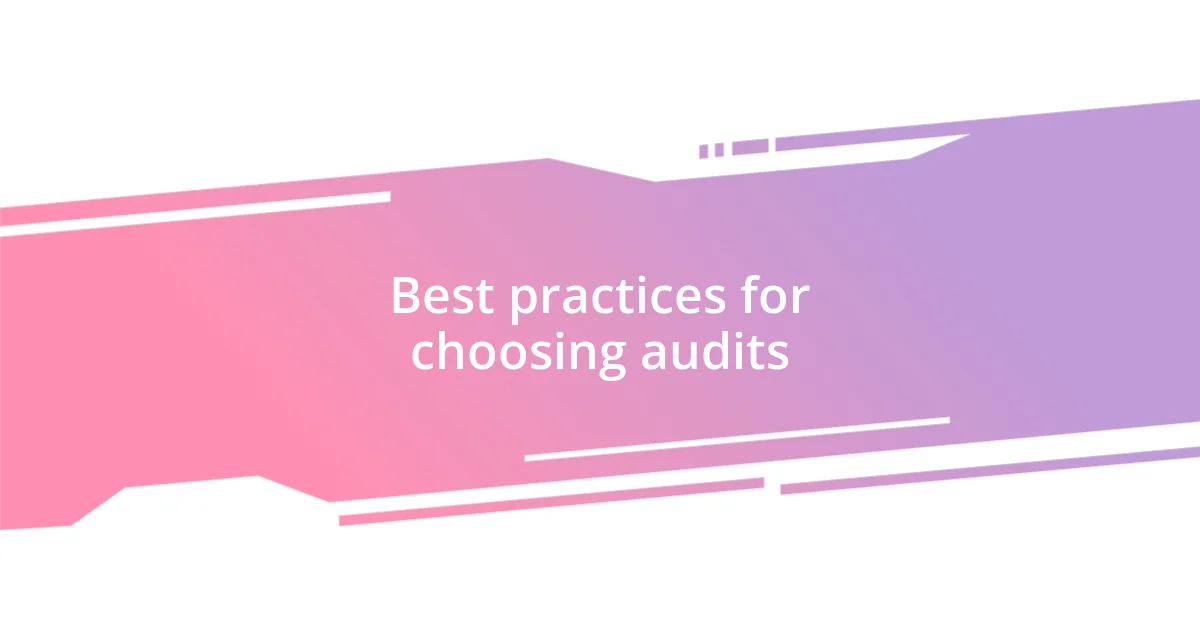
Best practices for choosing audits
Choosing the right audit is pivotal for ensuring the integrity of DeFi projects. I always start by looking for auditors with a strong track record in the specific area I’m interested in. It’s like picking a doctor—you wouldn’t go to just anyone for heart surgery, right? I lean towards firms that specialize in DeFi, as their focused expertise often translates to more insightful findings.
Another aspect that can’t be overlooked is transparency. I find it reassuring when auditors share their methodologies openly. It’s not just about the results; understanding how they arrived at their conclusions gives me confidence in their work. I remember a project that openly shared its audit trail, which made me feel much more secure in my investment. Isn’t it vital to know the steps taken to ensure our funds are safe?
Lastly, I pay attention to the tone of feedback from the community. A reputable audit firm will often have users discussing their experiences, and I’ve learned to trust the collective voice. It reminds me of the time I stumbled upon user reviews before booking a hotel for vacation. The mixture of praise and criticism provided a well-rounded perspective that helped me make better choices. Have you ever considered how community input can shape our decisions? It truly reinforces the importance of collective wisdom in this space.







